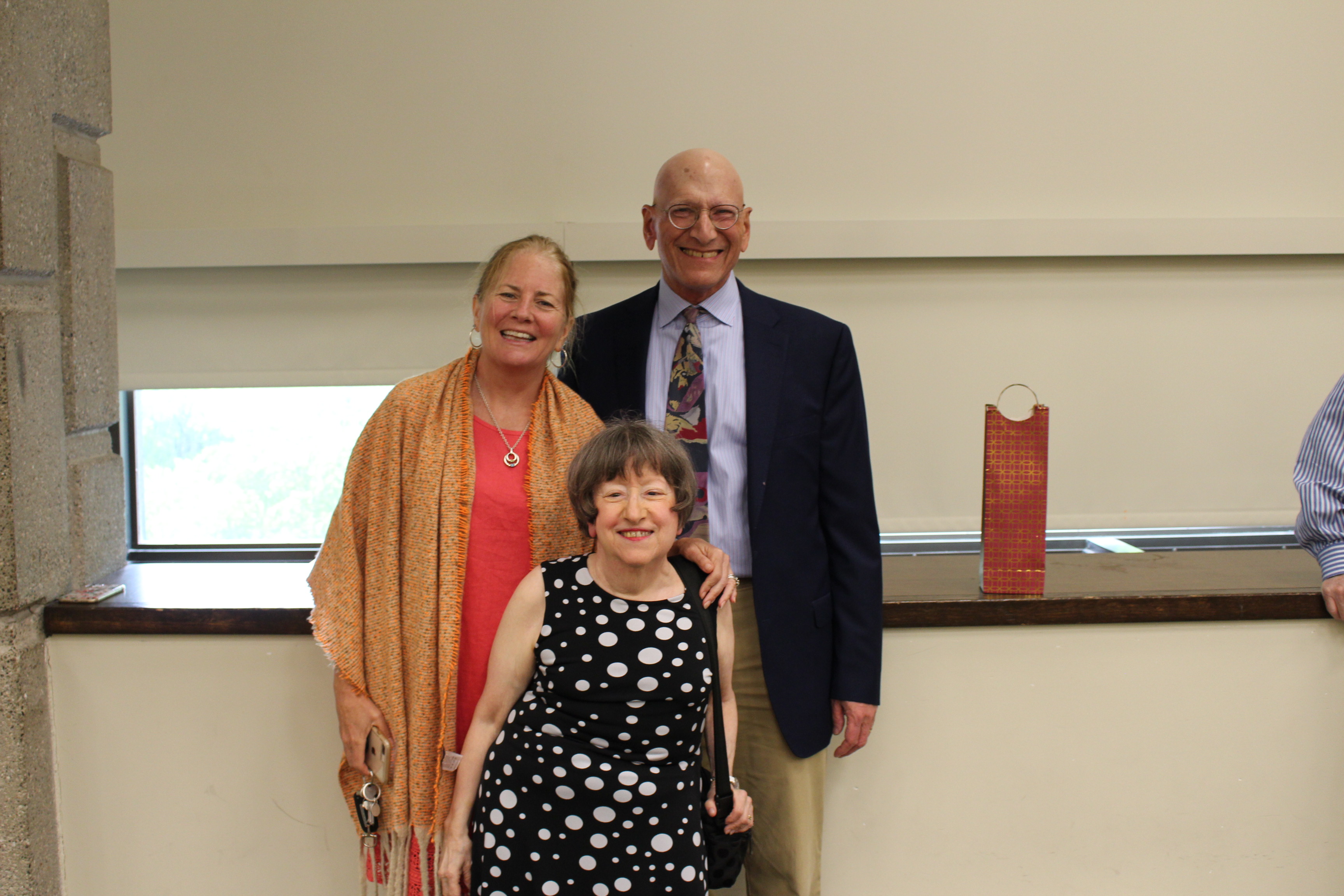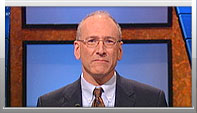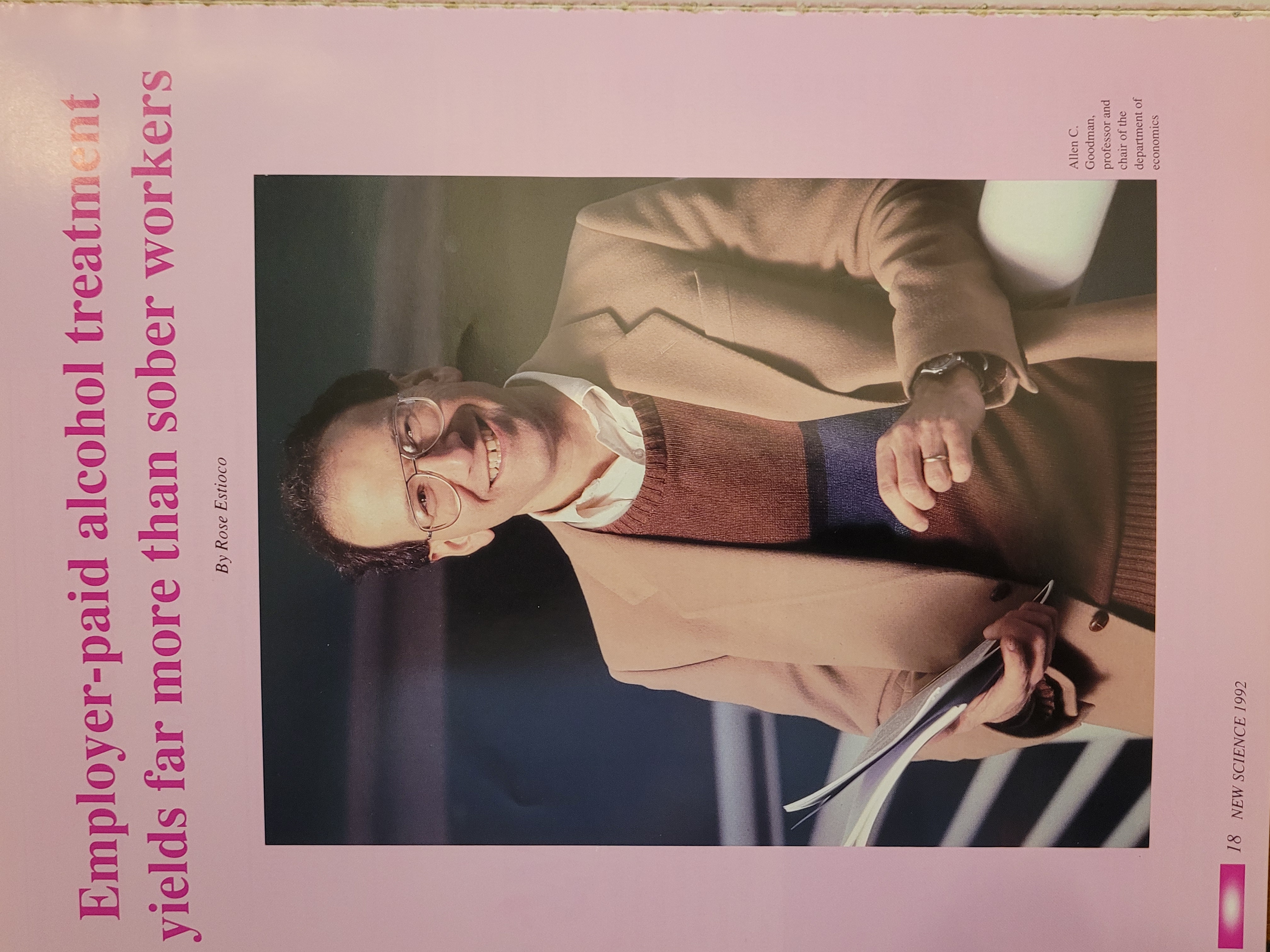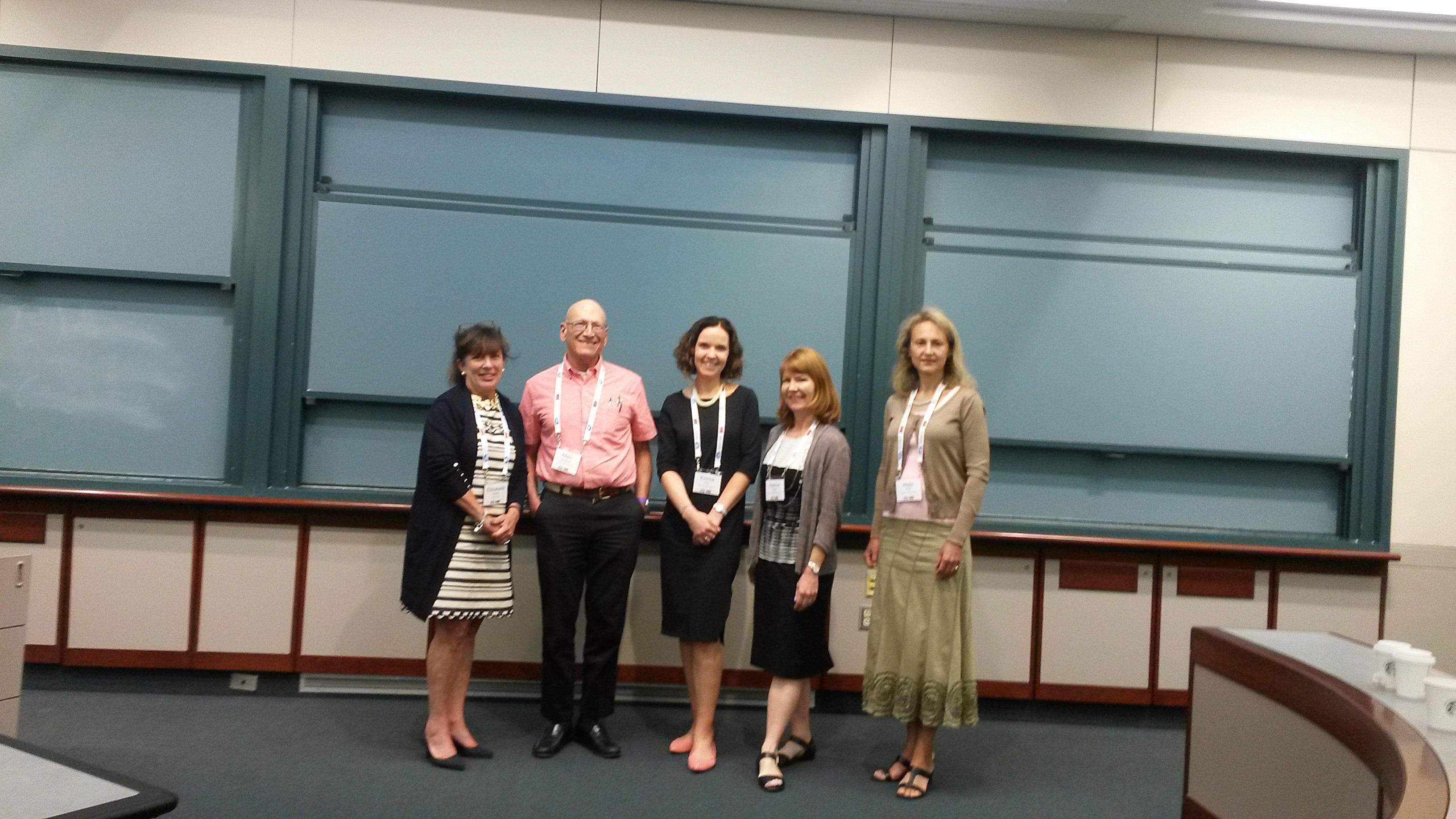For Allen Goodman, Ph.D., urban economics and health economics were a true daily double

When Allen Goodman, Ph.D. appeared as a contestant on "Jeopardy" in 2008, it fulfilled his longstanding hope to compete on his favorite game show. The knowledge and precision he utilized to buzz in answers were also apparent throughout his five-decade career focusing on two distinct subsections of economics, urban and health.
Authoring more than 100 publications throughout his career, Goodman also advised over 40 doctoral dissertations, and served as department chair (1988-1996) and director of graduate studies (2000-2014, 2020-2022) for the Department of Economics, playing a major role in recruiting and advising graduate and doctoral students.
Goodman and his wife Janet Hankin, Ph.D., professor of sociology, joined the faculty of Wayne State University in 1986. On May 26, they celebrated their simultaneous retirements at a reception inside the Student Center, surrounded by colleagues, former students and friends. As they watched 15 minutes of prerecorded video messages from additional well-wishers who could not attend in person, it was clear what an impact they had made.

A collaborator, Professor Shooshan Danagoulian, Ph.D., remarked in the video, "Allen, I appreciate your insights and mentorship and guidance throughout the years in starting my career. Through the highs and lows of this process, I have always had your advice, your willingness to share resources and show me the path. I look forward to building on your legacy to make our department stronger, and our graduate students better."
In remarks prepared for the reception, Goodman said that he was proud to have seen the university develop one of the best health economics graduate programs in the nation during his tenure. He added that helping place M.A. and Ph.D. students into academic positions, and into roles in private industry and the nonprofit sector, was the favorite part of his career.
"Our students have stood on our shoulders to conduct their research and to perfect their teaching to move the profession higher and faster," Goodman said. "Aside from our daughter, our students are our children and we couldn't be prouder of their accomplishments."
Up until Goodman's meeting with Hankin, whose work focuses on medical sociology, in 1978, his career had been almost exclusively focused on urban economics.
"I moved more heavily into the field of health economics with Jan's urging and counseling. I've had three R01 proposals funded which I could have never done without her telling me what was wrong," Goodman quipped at the retirement reception.
"Through the 1980s, I became more interested in health economics, and remarkably, I have juggled the two of them for the better part of the last 35 years," Goodman said. "What is curious, is that the health people, for the most part, have almost no knowledge of what I do in urban and the urban people have very little knowledge of what I do in health. Although I have written two or three papers with a colleague that kind of bridges them on medical real estate, which includes medical office buildings, medical office parks and locations of hospitals."

Goodman's insights into health economics have also included cost analyses on substance abuse treatment and cancer screenings.
More than a dozen of Goodman's publications were collaborations with Hankin (most recently, "Economic Models of Covid-19: Taxes and Cigars"), and he said that Detroit and the university provided an ideal place for both of them to conduct health-related sociological and economic research.
"We enjoyed being at the forefront of essentially health and urban problems. There was a lot going on in health and in the health economy here in Michigan and we were both interested in that. And putting my urban hat on, certainly over the last 15 to 20 years, there was a lot going on in the city of Detroit with the bankruptcy and figuring out what was going on with that," Goodman said. "Detroit and Wayne State proved to be a very good laboratory for our work."
In 2016, Goodman and Hankin endowed a major annual scholarship to graduate students in their respective departments for research in health economics and health sociology. The Allen Goodman and Janet Hankin Endowed Scholarship in Health Economics/Health Sociology Award is given to an economics graduate student every other year ensuring that Dr. Goodman's legacy will live on in the Department of Economics for many years to come.
Additionally, Goodman has co-authored eight editions of the groundbreaking textbook "The Economics of Health and Health Care" and is currently working with Danagoulian and Miron Stano, Ph.D. (Oakland University) on the ninth edition, poised to be released in 2023.
Goodman said the updated edition will include information related to the COVID-19 pandemic, a topic he said he found so interesting that he published 125 COVID-19-related blog posts between March 2020 and June 2022.
Goodman said the pandemic has epitomized ways that health economics are woven into everyday life.
"There are a lot of problems that the lay public may not realize have big economic components, but they certainly do. For example, a decision was made basically to give away the vaccines, but that doesn't mean it was costless because you have to make appointments and you have to go," Goodman said.
"My wife and I had to get the boosters at two separate places because some pharmacies only had Pfizer boosters and some had Moderna. That was an economic decision. They couldn't carry both, didn't have the capacity to carry both, and decided to separate it by the type of vaccine."
Looking back at his 36 years with the university, Goodman said he felt proud of the progress that has been made in connecting the Department of Economics with health-related partners on campus.
"When we first arrived, we had some, but little, connection with the Institute of Gerontology and essentially no interaction with the medical school at all. But over time, we built some durable and I hope, very long-lasting, bridges with these facilities at Wayne State because we've recognized, and they've come to realize, the importance of economic components including designing and evaluating interventions that would essentially help us spend our money better and help people get healthier."
"We've gotten to the point where we have a very strong economics presence within the medical school and with the IBio program and with the T-RUST Urban Sustainability program," Goodman said. "I think that I have been at the forefront, along with other people, of doing that, and I hope we have laid out a good foundation so that it will continue and grow."
